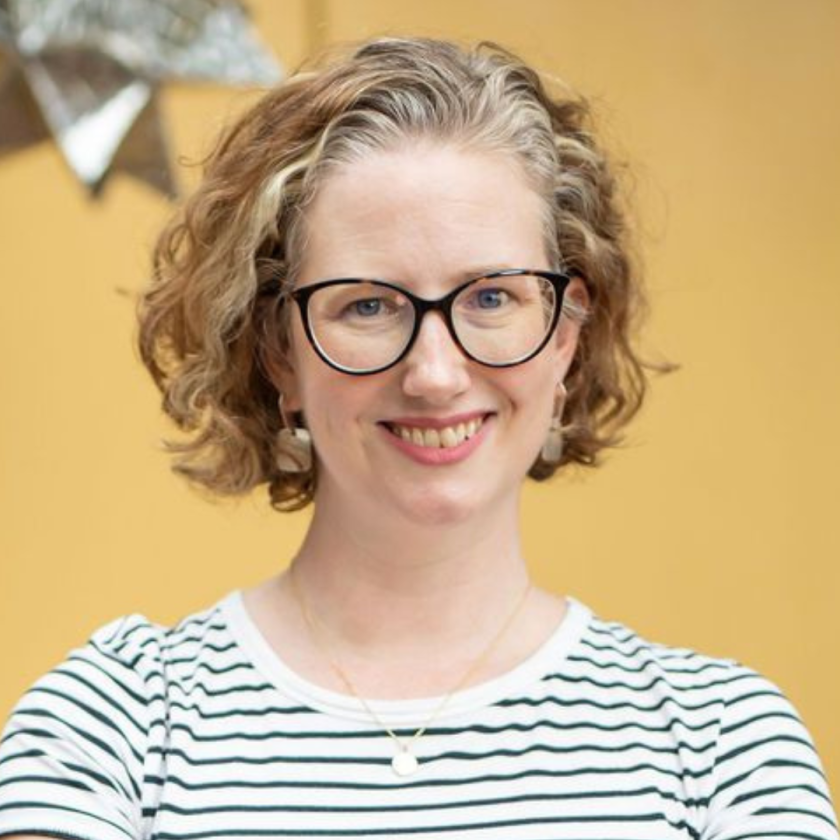
The PhD degree program at the iSchool celebrates its 75th anniversary in 2023. This profile is part of a special series featuring PhD alumni. Miriam Sweeney (PhD '13) is an associate professor at the University of Alabama.
What are the focus areas of your research? Your teaching?
I am a critical information scholar who studies chatbots, digital assistants, voice interfaces, artificial intelligence (AI), and big data infrastructures through the lenses of race, gender, and sexuality. For instance, I'm interested in how voice assistants use personality as the "killer app" of interface design by encouraging us to interact conversationally. I pay attention to how identity is used in the design of these technologies to cultivate trust and playfulness . . . while they simultaneously embed us into entrenched networks of surveillance and data mining. This is particularly important as we consider the various political and economic structures that drive smart technology industries and how these systems may perpetuate systemic oppression and disparities in society.
I integrate these topics into the courses I teach, both in core classes and elective offerings. For example, I will be teaching AI in Society this fall, in which we explore the environmental and human aspects of artificial intelligence and work to dispel common myths and misunderstandings of AI. We will certainly be taking on generative AI, like ChatGPT, as an emerging technology that is popping up everywhere right now!
What do you see as the most important impact of your work?
I believe the best research helps us to understand the world around us, be it the natural world or the social world. My work is critically oriented, meaning that the main objective is to problematize knowledge and try to "see" the world differently. I think this is a powerful viewpoint to bring to information and technology studies, since the technology industries have become so dominant in shaping society. It is important to question the accepted myths and promises of technology with an eye firmly fixed on the lives, well-being, and safety of everyday people: particularly those who have historically been marginalized and are still disproportionately targeted and impacted negatively by emerging technologies.
Why did you choose to pursue a PhD degree?
It had not occurred to me to pursue a PhD until I was enrolled in a master's program in library and information science (University of Iowa). It was there that my view of the field greatly expanded, thanks to amazing instructors like Dr. Christine Pawley, who opened my eyes to the research potentials in the field. I didn't even know you COULD do a PhD in LIS before that experience. I really connected to the spirit of inquiry that drives research and knew that I wanted to be a part of the legacy of building knowledge in our field and also be a part of training future LIS students. Along that journey, I discovered internet studies and critical information studies and felt at home with those scholarly communities. I was thrilled to be offered an IMLS-sponsored Information in Society fellowship at UIUC to start my PhD journey and knew immediately I had found my path and people.
What has it meant to you to be an alum of the program at Illinois?
Being an alum of the iSchool at Illinois has truly been an amazing experience. I still feel very connected to the cohort of peers from my PhD program and also feel a kinship to the alumni I meet. Illinois gave me so many opportunities that were integral to shaping the scholar and teacher that I have become, including opportunities to travel, present research, teach, be mentored by legends in our field like Dr. Linda C. Smith, and forever be a part of the legacy of the program.
What advice would you give to new PhD students?
My advice for new PhD students is to find your people in terms of establishing relationships with your peers. Lean on each other. Invest in each other. Lift each other up. Going it alone robs you of so many opportunities for learning from each other, having a support network, collaborating, and building a resilient professional network that extends far beyond graduation day. Also, try a little of everything. There is increased pressure to specialize immediately and push out publications, even as a student. But truly, try to stay a student with a learning mindset for as long as possible. Take every methods class. Say yes to opportunities that push you out of your comfort zone. Be involved. Soak it all up while you can, so you can look back later and say, "Wow. That was an amazing experience, and I learned so much."